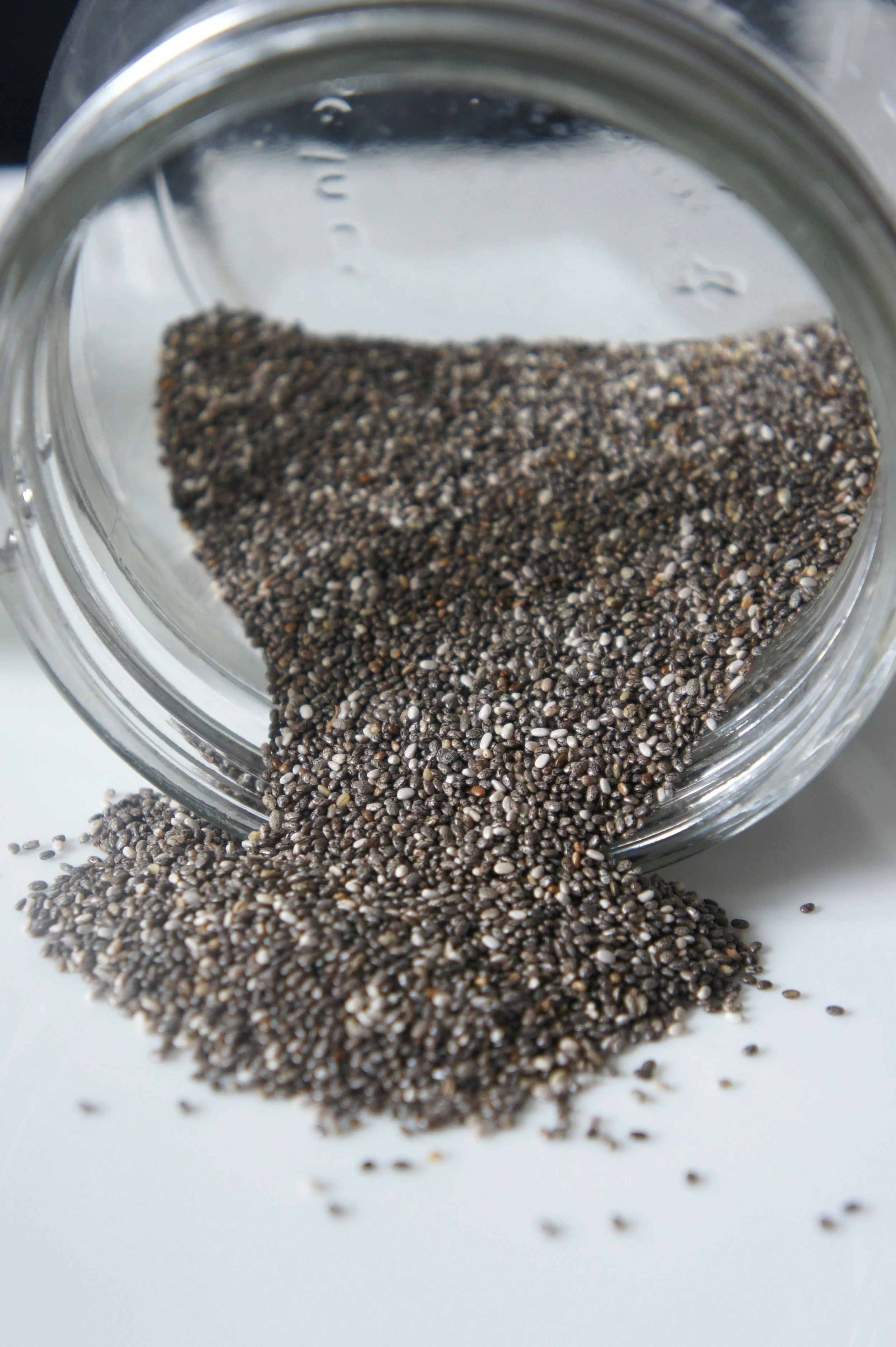Why do you feel more tired around the time of your period?
Do you feel more tired just before your period begins? Low in energy? If so, then you’re definitely not alone. Many people experience this, which is commonly referred to as “period fatigue”. This blog post will shed light on what is behind this common phenomenon and some practical solutions to help you overcome it.
What is period fatigue?
First and foremost, let's get to grips with what period fatigue actually entails. Period fatigue is a telltale symptom of premenstrual syndrome (PMS), a group of symptoms that affect some people in the days leading up to and during their period. These symptoms are closely intertwined with hormonal shifts that occur during this time, characterised by decreasing estrogen and progesterone levels.
More than 90% of menstruating individuals report grappling with various PMS symptoms. These can range from pesky headaches and frustrating sleep disturbances to mood swings, irritability, and the ever-present discomfort of menstrual cramps and bloating.
DISCLAIMER: THIS BLOG POST DOES NOT PROVIDE MEDICAL ADVICE
The information in this blog post, including but not limited to the text, graphics, images, are for educational and informational purposes only. None of the material within this blog post is intended to substitute medical advice, diagnosis or treatment. Always seek the advice of a qualified medical professional such as your doctor when you have concerns or questions.
So, what causes period fatigue?
As we have already pointed out, period fatigue is actually a symptom of PMS; so, the real question is: what causes PMS?
And to put it simply… we don’t know exactly.
However, the general consensus is that the fluctuations in hormone levels are the causal factors of PMS and the associated symptoms. During the late-luteal phase, just prior to the onset of menstruation, estrogen and progesterone levels decline. These two hormones are the key regulators of the menstrual cycle, determining everything that happens within it, any menstrual-related symptoms, and much more. Estrogen levels also have a knock-on effect on mood regulation, emotions and brain function, as a result of a direct effect on serotonin levels. During the luteal phase, and the beginning of menstruation, decreasing estrogen levels also results in a drop in serotonin levels. Serotonin is a neurotransmitter that is involved in mood regulation, and energy. Therefore, it comes as no surprise that when serotonin levels take a dip, your energy levels do as well. This is why those dealing with PMS, often report feeling more tired, and low in energy during this time of the menstrual cycle, and why period fatigue is an actual thing that affects many menstruating individuals.
However, there are also some other factors that could be the reason behind feeling more tired than usual at this time, besides the lower serotonin levels. For example, heavy menstrual bleeding can be associated with iron-deficiency anemia, which can lead to feeling weak, dizzy and persistent fatigue. If you experience heavy menstrual blood loss, meaning that you have to regularly change your period products, you experience severe cramping or notice large blood clots in your period blood, as well as struggling with fatigue during your menstruation, then it is best to speak to your healthcare provider. Besides fatigue due to iron loss, feeling drained can be linked to foods you eat as well. Food cravings are yet another symptom associated with PMS, with some people craving certain foods during this time, and eating these foods, and more of them than they usually would do. This can cause blood glucose levels to rise and fall, which can have an impact on energy levels. Moreover, sleep issues and disrupted sleep patterns can of course contribute to feeling more tired than usual just before and during your period. Some people experience changes in their sleep close to their period starting because of the discomfort of the physical symptoms, and the emotional turbulence. So, it’s not surprising that a lot of menstruators feel tired just before and at the start of their periods.
How to feel less tired during your period?
Well, the first solution is pretty obvious… get some rest. Resting and sleeping should be the first intervention if you’re experiencing period fatigue. But if this doesn’t work, or you can’t contemplate resting or sleeping because of work or other commitments, then there are some other things that you can try, that may help.
Medication
If you’re experiencing sleep issues due to discomfort, over-the-counter Nonsteroidal Anti-Inflammatory Drugs (NSAIDs) like ibuprofen, could be one option to consider. These act to inhibit prostaglandin elevation, which contributes to inflammation and menstrual pain. Taking a strategic dose of an NSAID before bed could help alleviate these symptoms, helping you to get a better night's rest.
Another option is of course to speak to your healthcare provider about possible contraceptive use. If period fatigue and other symptoms are affecting your daily life, it might be worthwhile to use some kind of contraception to help regulate the hormonal fluctuations that are causing the issues. However, contraceptive use is not for everyone and there are some things that you can try besides medication.
Supplements/Diet
Some supplements have been shown to help mitigate both physical and emotional symptoms of PMS, one of these being calcium. Increasing your calcium intake through supplements, or through eating more calcium-rich foods such as yoghurt, chia seeds, almonds and kale, could be beneficial. Remember, it’s always best to consult with your healthcare provider prior to introducing new supplements to your regimen, just in case they may interact with any medication that you are taking or could be not so good for your health, for other reasons. Another supplement that has been shown to help improve symptoms of fatigue is the herbal supplement, Rhodiola rosea extract, which was found to also aid with attention through its ability to increase resilience to stress. Prior to menstruation and during, it can also be good to supplement with iron or increase your iron intake, to replenish the iron lost through menstrual blood loss, helping to reduce fatigue and feeling tired. When doing this, it is important not to exceed the recommended daily allowance (RDA) of iron (18 mg for menstruating women aged 19-50 years old), as too much iron can lead to iron overload which can lead to more serious health issues.
A more holistic approach
Beyond medical interventions, and taking supplements, there are some more holistic options that you could try to help reduce period fatigue.
For one, you can try to improve your sleep hygiene in general. A good sleep schedule that ensures 6-8 hours of sleep is recommended, as well as turning your bedroom into a beautiful sleep sanctuary. Lower the room temperature, lower the lights and make it a place for pure relaxation (and a few other things, of course…). Get comfy with a book (instead of your phone), just before you plan to sleep and just allow yourself to unwind and relax.
This brings us to the next point – relax. If you’re feeling tired, it’s okay sometimes to just allow yourself to rest and relax; listen to your body. Relaxing more throughout the day and before bedtime can also help to release tension, and improve sleep quality. Try some mindfulness techniques, such as meditation and breathing exercises, or even do some gentle exercises like yoga.
There are some studies that have shown that regular aerobic exercise can actually reduce period fatigue (as well as help boost your overall physical and mental well-being). Aerobic exercise is anything that keeps the heart rate elevated for a while, like running or brisk walking.
How to prevent period fatigue?
Rather than waiting for the fatigue to hit and then taking action, you can always try prevention measures to attempt to manage your energy levels throughout your entire menstrual cycle.
Some of these prevention measures you’ve probably been told a million times, but that’s for good reason!
They include:
1. Healthy sleep habits: sticking to a consistent sleep schedule by going to bed and waking up roughly at the same time each day, to help regulate sleep-inducing hormones.
2. Balanced diet: aim to eat regular, balanced meals throughout the day to help stabilise blood sugar levels, reducing those energy crashes and fatigue.
3. Stay hydrated: making sure that you drink enough water can help prevent fatigue.
4. Regular exercise: Incorporating exercise into your routine can help improve mood and sleep quality, which are both important factors in managing period-related fatigue.
When is period fatigue a problem?
When the fatigue is just too much, that your life is being affected and you can’t do everyday activities that you normally would do, then it is best to consult with a healthcare professional to get some medical advice.
Also, when:
You’ve tried some of the above at-home remedies and the fatigue persists.
You also experience severe or debilitating PMS symptoms alongside the period fatigue, particularly severe depression and pain.
Extreme fatigue might signal a more severe form of PMS called premenstrual dysphoric disorder (PMDD), which warrants medical attention [Check out this blog post to learn more about PMDD]. If your fatigue extends beyond your menstrual cycle, seeking medical evaluation is imperative to rule out other underlying conditions that could be causing it.
That’s enough of period fatigue.
So, there you have it, period fatigue is a thing but it doesn’t have to be your thing. Despite it being a common symptom associated with PMS, and experienced by many just before and during menstruation, it is not something that you should just “tolerate”. Yes, you can and could be that bit kinder to yourself during this time, and listen to your body and relax when you need to, but you can also take action and fight off the period fatigue. Hopefully, with the knowledge from this blog post, you feel prepared now to do just that! Bye-bye period fatigue we say!





